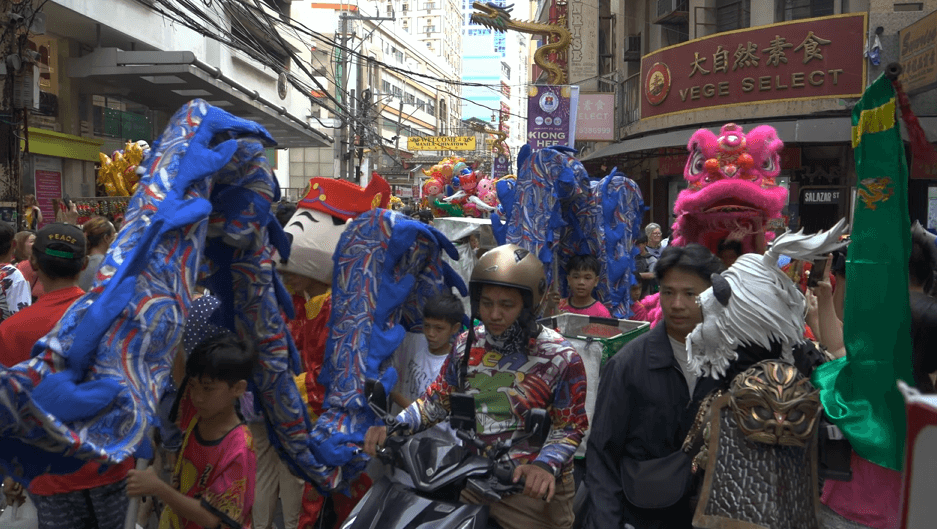Chinese New Year begins throughout the world on Wednesday, January 29th, with 15 days of revelry. Some choose to call this event the “Lunar New Year.” Should we thus refer to a “Chinese” or “Lunar” New Year?
The year of the snake begins today, Wednesday, January 29th. The Chinese New Year celebrations begin today and extend for 15 days. Decorated homes, family feasts, parades… However, this festival is celebrated by many individuals all around the world. So, is it wrong to talk about “Chinese” New Year?
Xavier Paulès, head of the Center for Studies on Modern and Contemporary China (which comes under the EHESS and the CNRS), tells BFMTV.com that it has been honored “for as long as the Chinese calendar has existed,” which is several thousand years.
Because “it is the Chinese calendar that gives the date” of this New Year, which corresponds to the second new Moon (moment when the Moon is between the Earth and the Sun) following the winter solstice on December 21. As a result, the researcher feels it is acceptable to refer to the Chinese New Year.
Some people prefer the term “Lunar New Year”
However, several Asian nations now celebrate the Chinese New Year, with some having their own unique traditions. “In Vietnam, the Tet festival is equivalent,” says Xavier Paulès. The celebration of the new year “is also very important in Indonesia, Thailand, Malaysia, Korea, Singapore… where the Chinese presence is important in terms of influence and demographics,” the instructor at EHESS states.
To represent the variety of these events, some are advocating for the use of the name “Lunar New Year” rather than “Chinese New Year.” Maggie Ying Jiang, an associate professor at the University of Western Australia and an expert in intercultural communication, told CNN in 2023 that this is a symptom of the “conflicting cultural identities among Asian nations” and China’s neighbors’ “continuing efforts” to emphasize their respective cultures.
An “abuse of language”?
According to Xavier Paulès, the phrase “Lunar New Year” is “an abuse of language”: “if we really want to be rigorous, we should say lunisolar.” Indeed, the Chinese calendar is neither a lunar calendar (which follows the phases of the Moon) like the Muslim calendar, nor is it a solar calendar (based on the movement of the Earth around the Sun) like the Gregorian calendar, which is used for civil years in the majority of the globe.
The Chinese calendar is lunisolar, meaning it follows both the Sun and the Moon’s cycles. According to Xavier Paulès, the name “Lunar New Year” is thus “not very appropriate.” “But there isn’t much better,” he admits.
In summary, stating “Chinese New Year” is correct because this festival originates in China and follows its schedule. However, some prefer to use the term “Lunar New Year” to underline the diversity of its ceremonies throughout Asia. However, in China, this festival is referred to as the “Spring Festival” rather than the Chinese New Year. According to Xavier Paulès, this ritual dates back to the 1920s-1930s, when “the Chinese authorities wanted to force the population to abandon the traditional calendar” in favor of the Gregorian calendar, “a symbol of modernity”. “It was a way to continue celebrating this holiday after it was banned,” says the researcher.











+ There are no comments
Add yours